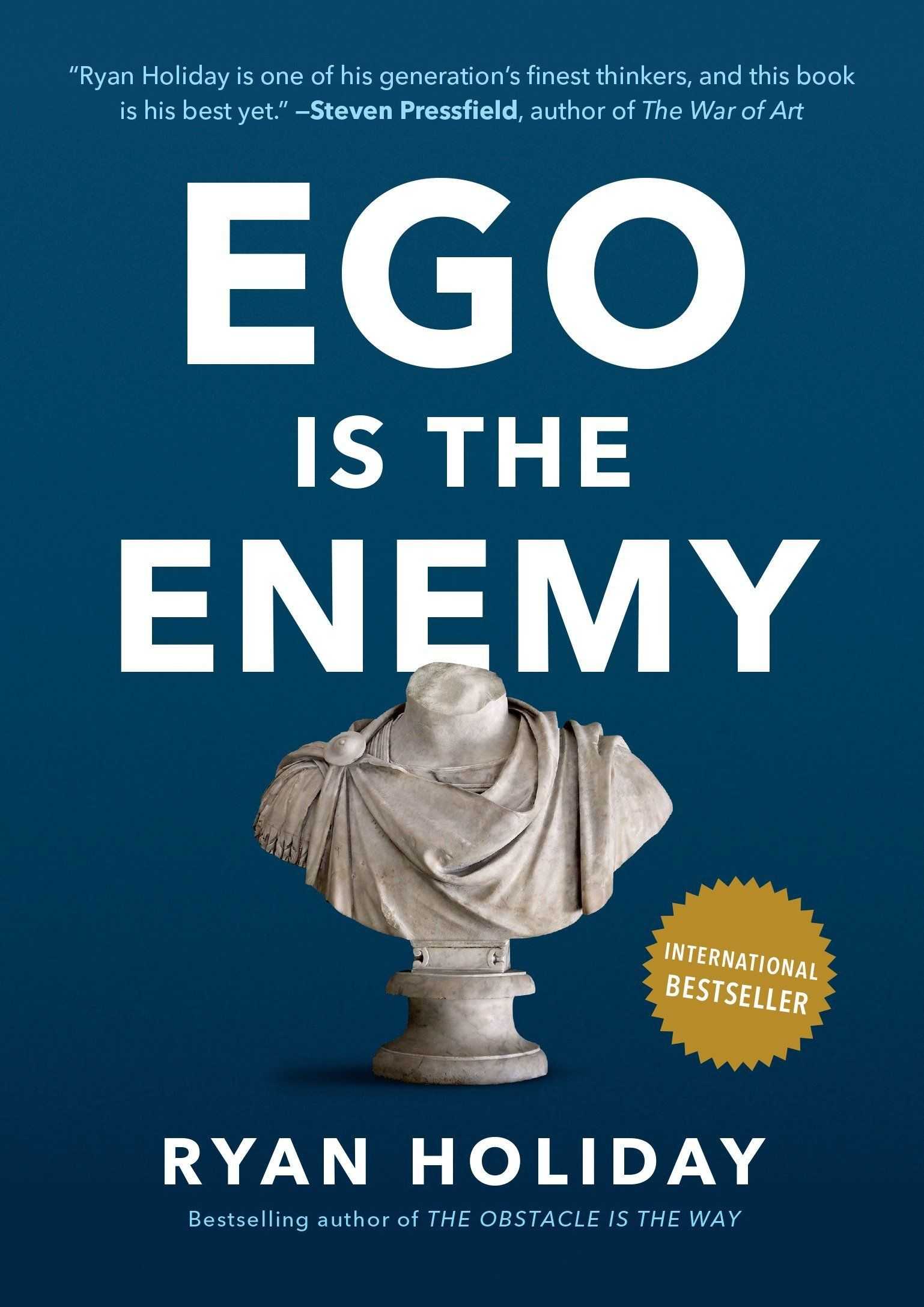35 Highlights
The ego we see most commonly goes by a more casual definition: an unhealthy belief in our own importance. Arrogance. Self-centered ambition.
The need to be better than, more than, recognized for, far past any reasonable utility—that’s ego.
Self-confidence becomes arrogance, assertiveness becomes obstinacy, and self-assurance becomes reckless abandon.
Bill Walsh
Talk depletes us. Talking and doing fight for the same resources.
To be somebody or to do something. In life there is often a roll call. That’s when you will have to make a decision.
Impressing people is utterly different from being truly impressive.
The power of being a student is not just that it is an extended period of instruction, it also places the ego and ambition in someone else’s hands.
The pretense of knowledge is our most dangerous vice, because it prevents us from getting any better. Studious self-assessment is the antidote.
A man is worked upon by what he works on,
Frederick Douglass
It is impossible to learn that which one thinks one already knows.
Epictetus
If you start believing in your greatness, it is the death of your creativity.
Marina Abramović
The art of taking feedback is such a crucial skill in life, particularly harsh and critical feedback. We not only need to take this harsh feedback, but actively solicit it, labor to seek out the negative precisely when our friends and family and brain are telling us that we’re doing great. The ego avoids such feedback at all costs, however.
Especially in a world that tells us to keep and promote a “personal brand.” We’re required to tell stories in order to sell our work and our talents, and after enough time, forget where the line is that separates our fictions from reality.
There’s no one to perform for. There is just work to be done and lessons to be learned, in all that is around us.
What we cultivate less is how to protect ourselves against the validation and gratification that will quickly come our way if we show promise. What we don’t protect ourselves against are people and things that make us feel good—or rather, too good. We must prepare for pride and kill it early—or it will kill what we aspire to.
A proud man is always looking down on things and people; and, of course, as long as you are looking down, you cannot see something that is above you.
C. S. Lewis
The first product of self-knowledge is humility.
Flannery O’Connor
Just because you are quiet doesn’t mean that you are without pride. Privately thinking you’re better than others is still pride. It’s still dangerous.
You can’t build a reputation on what you’re going to do.
Henry Ford
The hard thing isn’t setting a big, hairy, audacious goal. The hard thing is laying people off when you miss the big goal. . . . The hard thing isn’t dreaming big. The hard thing is waking up in the middle of the night in a cold sweat when the dream turns into a nightmare.
Ben Horowitz
Two different characters are presented to our emulation; the one, of proud ambition and ostentatious avidity. The other, of humble modesty and equitable justice. Two different models, two different pictures, are held out to us, according to which we may fashion our own character and behaviour; the one more gaudy and glittering in its colouring; the other more correct and more exquisitely beautiful in its outline.
Adam Smith
No matter what you’ve done up to this point, you better still be a student. If you’re not still learning, you’re already dying.
An amateur is defensive. The professional finds learning (and even, occasionally, being shown up) to be enjoyable; they like being challenged and humbled, and engage in education as an ongoing and endless process.
Crafting stories out of past events is a very human impulse. It’s also dangerous and untrue. Writing our own narrative leads to arrogance. It turns our life into a story—and turns us into caricatures—while we still have to live it. As the author Tobias Wolff writes in his novel Old School, these explanations and stories get “cobbled together later, more or less sincerely, and after the stories have been repeated they put on the badge of memory and block all other routes of exploration.”
One of the symptoms of approaching nervous breakdown is the belief that one’s work is terribly important.
Bertrand Russell
Entitlement assumes: This is mine. I’ve earned it. At the same time, entitlement nickels and dimes other people because it can’t conceive of valuing another person’s time as highly as its own.
Control says, It all must be done my way—even little things, even inconsequential things. It can become paralyzing perfectionism, or a million pointless battles fought merely for the sake of exerting its say.
Paranoia thinks, I can’t trust anyone. I’m in this totally by myself and for myself. It says, I’m surrounded by fools. It says, focusing on my work, my obligations, myself is not enough.
He who indulges empty fears earns himself real fears.
Seneca
It is because mankind are disposed to sympathize more entirely with our joy than with our sorrow, that we make parade of our riches, and conceal our poverty. Nothing is so mortifying as to be obliged to expose our distress to the view of the public, and to feel, that though our situation is open to the eyes of all mankind, no mortal conceives for us the half of what we suffer.
Adam Smith
He will face a battle he knows not, he will ride a road he knows not.
Gilgamesh
Ego loves this notion, the idea that something is “fair” or not.
He who fears death will never do anything worthy of a living man.
Seneca
People learn from their failures. Seldom do they learn anything from success.
Harold Geneen
There’s a quote from Bismarck that says, in effect, any fool can learn from experience. The trick is to learn from other people’s experience.
